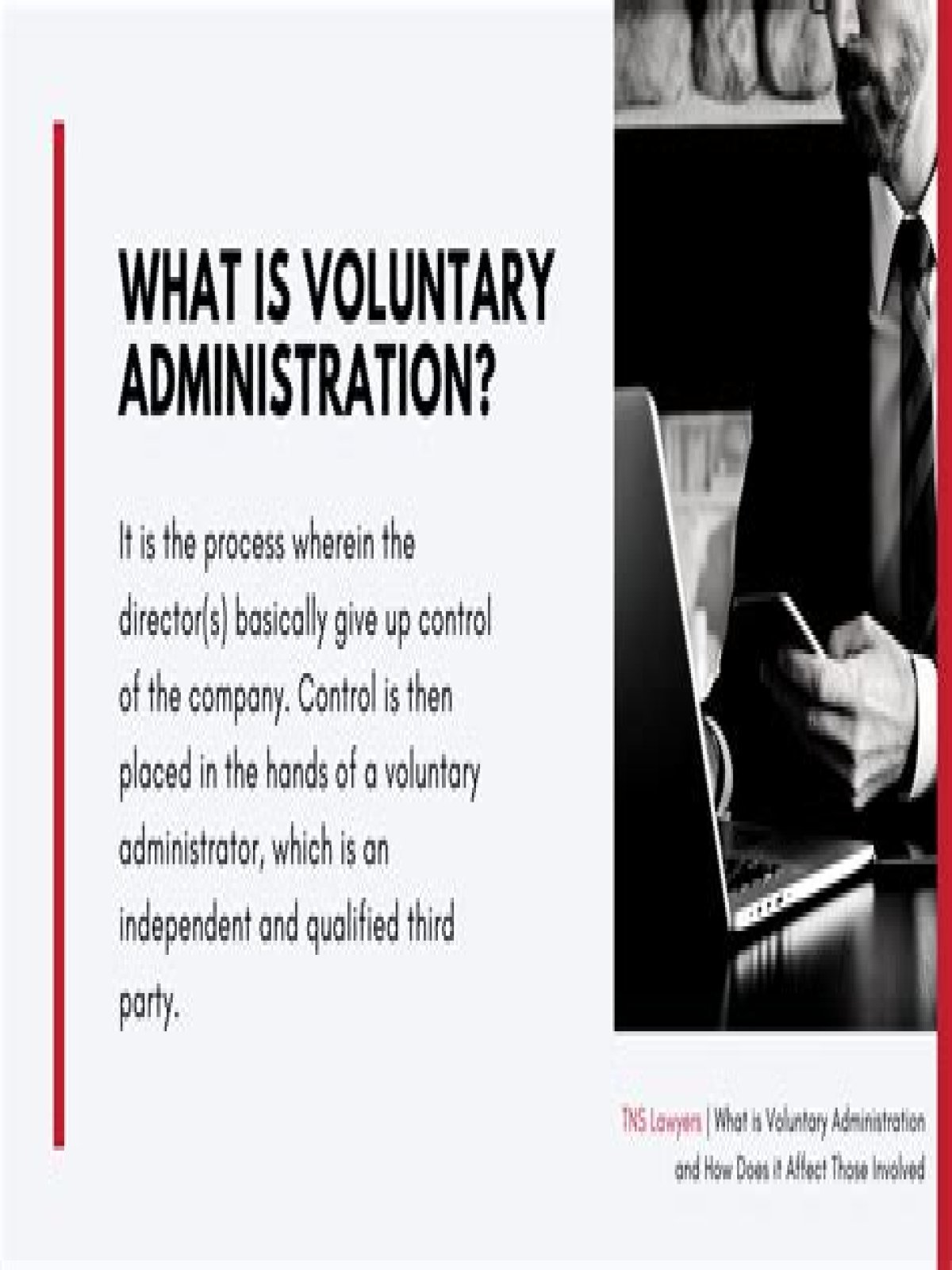Regarding this, what happens voluntary administration?
The purpose of voluntary administration. Voluntary administration is designed to resolve a company's future direction quickly (the below table summarises the process). A voluntary administrator is usually appointed by a company's directors, after they decide that the company is insolvent or likely to become insolvent.
Furthermore, what is the difference between voluntary administration and liquidation? In brief – Voluntary administration is not the same as liquidation. The purpose of liquidation is to wind up a company, whereas the purpose of voluntary administration is to assess the company's viability, turn its fortunes around if possible and provide a better return to creditors if not.
Similarly one may ask, how is an administrator appointed?
An administrator can be appointed by: the board of directors of a company taking a majority decision. the shareholders of a company at a general meeting. a qualifying floating charge holder – meaning a debenture holder, usually a bank.
What are the possible outcomes of voluntary administration?
There are three possible outcomes that the creditors can resolve:
- The company can be returned to the directors – however, this rarely occurs in practice and generally would only be if for some reason the company was solvent.
- The second is liquidation.
- The third possible outcome is a Deed Of Company Arrangement (DOCA).
Who gets paid when a company goes into administration?
Can a company still trade in administration?
Do staff get paid when a company goes into administration?
Do employees get paid when a company goes into administration?
Should you pay a company in administration?
What happens during administration?
How long can a company trade in administration?
What is the process of administration?
How long can you be in administration?
What is the purpose of administration?
What is the duty of an administrator?
What are the jobs in administration?
- Administrative Assistant.
- Administrative Coordinator.
- Administrative Director.
- Administrative Manager.
- Administrative Services Manager.
- Administrative Services Officer.
- Administrative Specialist.
- Administrative Support Manager.
